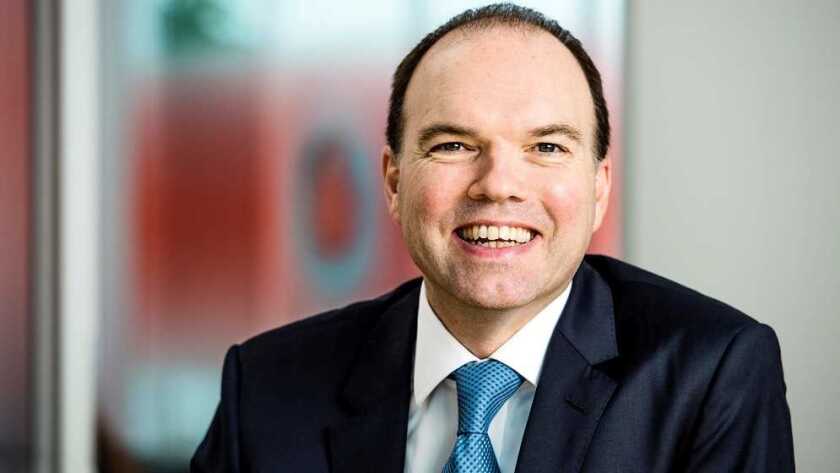The British-based conglomerate’s European tower infrastructure will be separated into a new organisation, referred to as TowerCo, which will begin operating in May 2020 with a dedicated management team.
Vodafone said in might sell shares in TowerCo in an initial public offer (IPO) as one of “a variety of monetisation alternatives” that it will look at over the next 18 months.
“Building on our position as Europe’s largest converged operator, we are now creating Europe’s largest tower company,” said group CEO Nick Read (pictured). “Given the scale and quality of our infrastructure, we believe there is a substantial opportunity to unlock value for shareholders while capturing the significant industrial benefits of network sharing for the digital society.”
With 75% of TowerCo’s sites in the major markets of Germany, Italy, Spain and the UK, Vodafone has forecasted an annual revenue of €1.7 billion and EBITDA of €900 million. This is based on market benchmarks for anchor tenant lease rates, existing third party revenues and the attributable cost base.
During the course of the valuation of its tower assets, Vodafone said it had already received “several offers” for various parts of its portfolio, highlighting that it would “command an attractive valuation”.
It added that TowerCo’s had a “superior asset quality, strong market positions and higher anchor tenant credit rating”, and will use the proceeds of any capex and opex savings to reduce the group’s debt.
Nick Read, who became the CEO of Vodafone in October 2018, cut the mobile operator’s dividend by 40% in May to address the company’s net debt, which stood at €27bn at the end of March.
In September last year, Read said he was considering selling the group’s mobile masts to help even out Vodafone’s balance sheet, support 5G network development and acquire some Liberty Global assets.
Although Read changed his mind on the sale, Vodafone has gone ahead with its €18.4 billion takeover of Liberty Global’s eastern European business, which could happen before the end of this month.
Vodafone’s found a “significant scope to generate operational efficiencies and increase tenancy ratios across the portfolio” in a review of its tower assets, and that it could “monetise towers while preserving network differentiation and long-term strategic flexibility”.
The company recently announced active and passive network sharing agreements in Italy, Spain and the UK, and will continue to pursue similar arrangements across its European footprint in order to capture the sizeable industrial benefits prior to monetisation of its tower infrastructure.
After announcing a plan in February, TIM and Vodafone today signed agreements for an extension of their existing passive network sharing agreement with Inwit and for an active mobile network sharing partnership.
These sharing agreements ensure that Vodafone can benefit from a faster roll out of 5G technology across a wider geographic area at a lower cost, and are expected to deliver substantial annual recurring savings in opex and capex.
Capacity's sister company Tower Xchange has produced this analysis of the Vodafone plan.





